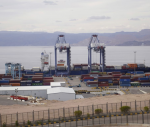You are here
The resistible rise of Germany's far right
Nov 26,2022 - Last updated at Nov 26,2022
MUNICH — The recent elections in Sweden and Italy have shown that right-wing populism remains on the rise across Europe. Not so in Germany, where the far-right Alternative für Deutschland (AfD) has had only modest success so far.
One possible explanation for Germany’s resistance to the populist surge is that, unlike far-right parties that have gained ground elsewhere in Europe, globalisation played only a minor role in AfD’s rise. The party became an electoral force long after globalization peaked in Germany, and its successes have mostly been confined to the states in former East Germany.
Before AfD emerged in 2013 as an anti-euro and anti-Greek-bailout party, Germany had no successful right-wing populist movement. Given that trade as a share of GDP had already been stagnating since the 2008 financial crisis, the party quickly shifted its focus to xenophobia and anti-immigrant policies.
AfD’s political trajectory reflects its popularity in eastern Germany, where the party won 27.5 per cent and 23.5 per cent of the vote in Saxony and Brandenburg, respectively, roughly twice its share in Germany’s western states.
The roots of this disparity lie in the lead-up to the country’s 1990 reunification, when the West German government liberalised trade with East Germany overnight.
The East German Ostmark was converted to the Deutsche Mark at a rate of 1:1, causing wages in the east to increase to 70 per cent of western German salaries, even though productivity in East Germany was just 30 per cent of that in the west.
As a result, the East German manufacturing sector went bankrupt almost immediately.
German reunification, shaped by a false narrative that East Germans had “nothing to sell” in a market economy, marked the beginning of East Germany’s deindustrialisation, resulting not only in job losses but also in a collective loss of self-esteem. The decline in living standards, and the resentments to which it gave rise, empowered the far right.
But globalisation per se did not play a major role in AfD’s eastern surge. Eastern Germany became a de facto closed economy after the fall of the Berlin Wall, with little exposure to international trade or immigration. This provincialism may have contributed to the increase in anti-immigrant sentiment, as having little interaction with foreigners has been shown to encourage xenophobia. A 2017 study, for example, found that high refugee density was correlated with a lower vote share for AfD.
Another reason Germany did not experience the same anti-globalisation backlash as the United States and other high-income countries is that it did not suffer the same economic devastation as they did. The “China Shock” that followed China’s admission to the World Trade Organisation in 2001 had a profound impact on jobs and wages in the US, particularly for workers in the manufacturing sector, driving the decline of US manufacturing employment and contributing to former president Donald Trump’s election in 2016. The German labour market, on the other hand, has not been affected in the same way by China’s export boom.
Germany’s economy fared better than other developed countries because domestic manufacturers faced less import competition from Chinese imports, which increased by 14 per cent between 2000 and 2010, compared to 25 per cent in the US.
Moreover, German imports from China tended to be goods that it had previously imported from other low-cost markets, like textiles, thereby causing job losses in countries like Greece and Turkey, but not in Germany. The effect of rising Chinese imports was also more than offset by a surge in German exports to Central and Eastern Europe, resulting in an increase in manufacturing employment.
Lastly, Germany experienced a sharp increase in exports to China, compensating for the growth in Chinese imports. German exports to China almost doubled after the 2008 financial crisis, owing to demand among Chinese manufacturers and China’s burgeoning middle class for German machinery, chemicals, and cars.
But the rewards of this increase in trade were unevenly distributed. The expansion of production networks to Central and Eastern Europe, where labor was cheaper, led to a 30 per cent decline in German unit-labour costs between 1995 and 2012. Germany was the only European country to experience such a decline, as the threat of offshoring to its eastern neighbours shifted the balance of power between trade unions and employers, resulting in the decentralisation of wage bargaining and the weakening of organised labour. While this structural wage restraint (Lohnzurückhaltung) has been blamed for reducing German wages, it also made Germany more competitive.
The war in Ukraine and pandemic-related supply-chain disruptions have ushered in a new era of deglobalisation and reshoring. Assuming that eastern Germany manages to reindustrialise and become a green-technology powerhouse, the grievances that have fueled AfD’s rise may become a thing of the past.
Dalia Marin, professor of International Economics at the School of Management of the Technical University of Munich, is a research fellow at the Centre for Economic Policy Research and non-resident fellow at Bruegel. Copyright: Project Syndicate, 2022. www.project-syndicate.org












